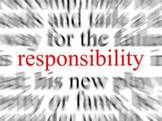
As junior high love goes, we later moved on to other infatuations, but I learned a great lesson from that experience. When you want something, ask for it. It is your best chance at getting what you want. One of my favorite things to ask for is knowledge. I love to learn from others. It’s less painful than learning from my own mistakes and the varying points of view and life experiences are extremely insightful and often entertaining as well. I especially enjoy asking successful individuals what they learned in their journey of success. From a financial perspective, here are 5 principles I’ve learned from “quiet” millionaires, those who are the wealthy incognito. These 5 principles may seem a bit sporadic and random, but they are exemplified by nearly every wealthy person I know!
1- Income and Wealth are not the same thing- The single most consistent thing I see in the wealthy I work with is the habit of spending less than they earn. You might say “It’s easy for them, they’re rich!” but truth be told most of them had lived within their means and stuck something away for a rainy day even before they were wealthy. Saving and then carefully getting money to grow is key for anyone that desires self-made wealth.

3- Take responsibility- wherever you are financially, it’s your own fault. Sure, there are plenty of people who have caused you problems and cost you your wealth, and those who lucked out and inherited wealth. More often, however, are those who earned it through hard work, effort, determination, and other words we like to avoid. They owned their life, including the financial part of it. They decided what they wanted and they consistently worked for it until they got it. Take responsibility for what you have, and for what you don’t have. Then commit today to go get what it is you want to have. If you need a reason to do that, do it because that’s what all the cool rich people do J Besides, it worked for Harry Truman, 33rd President of the good ole’ US of A.

The same holds true for your spouse. Broken marriages are costly. Not only do they cause great stress and hardship emotionally, divorce also wrecks personal financials. From the dividing up of household debt, attorney’s costs, and the loss of productivity to the one household’s income suddenly needing to cover two households worth of expenses, divorce is rough on the finances. Instead, go get some professional help, put in the work it takes to have a great relationship, and try to salvage your marriage. It doesn’t always work out, but if it can, it is to your financial benefit.
5- Money doesn’t buy happiness, but controlling it does- Spending with a purpose provides gratification and is less –likely to lead to buyer’s remorse. Living within your means brings great peace and some real financial confidence. An added bonus of understanding that “status” purchases don’t bring happiness helps us to save more and waste less. So don’t let your money control you and don’t try to buy happiness. Use your money to do things you enjoy, save for a rainy day, and build up a nice security blanket so you can live financially stress free.
About this Author: Ed Kinsey has been in the financial services industry since 2003. He has experience in Real Estate, Mortgages, Commercial Finance, Annuities, and Life and Health Insurance. His goal is to benefit the lives of one million people. He want companies to start providing better benefits at lower costs through our services. He wants to enlighten people to the retirement benefits available through life insurance, the only tax free retirement option. We have secure solutions. Ed is also a world ranked powerlifter and fitness enthusiast.











 RSS Feed
RSS Feed
